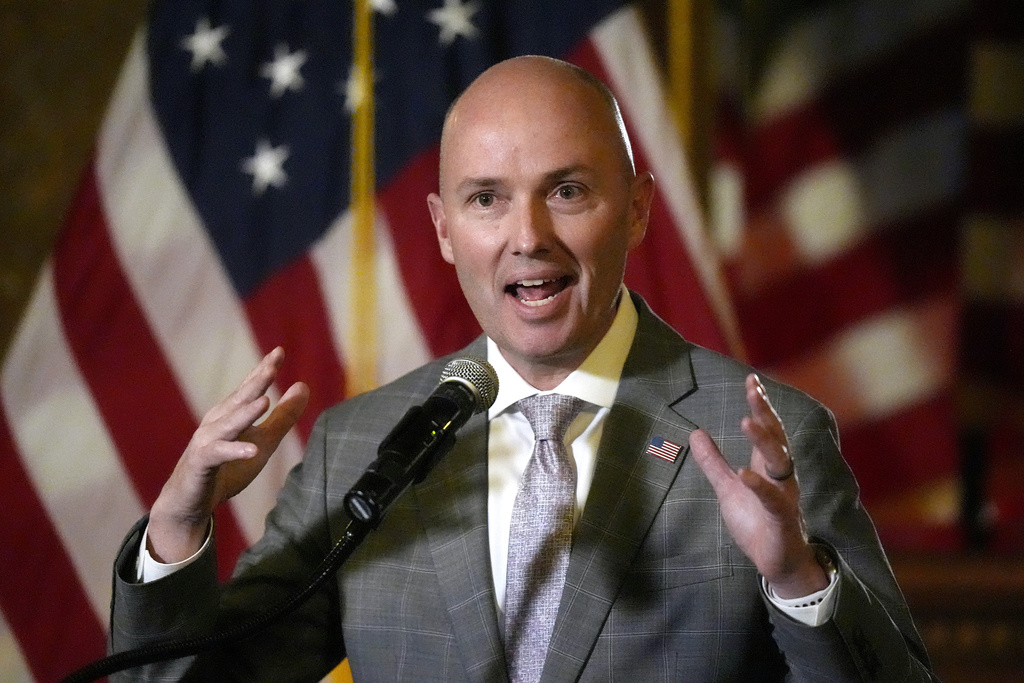The proposals made Thursday by Republican Jon Burns are the first policy response to the Sept. 4 shooting at Apalachee High School in Winder.
The efforts by the Republican leader comes as he tries to protect his party's 102-78 majority in the state House in November's elections. Arguments over gun policy could influence a handful of competitive seats in Atlanta's northern suburbs, including three held by Republican incumbents.
“While House Republicans have already made significant investments to strengthen security in our schools, increase access to mental healthcare, and keep our students safe, I am committed to not only continuing this work but pursuing additional policies that help ensure a tragedy like this never happens in our state again,” Burns wrote.
Investigators say the shooting was carried out by 14-year-old Colt Gray, charged as an adult with four counts of murder. Authorities charged his 54-year-old father, Colin Gray, with second degree murder, involuntary manslaughter and cruelty to children. Investigators allege Colin Gray gave his son access to a semiautomatic AR-15-style rifle when he knew the teen was a danger to himself and others.
Burns said he wants to consider information sharing among police, schools and mental health workers, a nod to the fact that Colt and Colin Gray were questioned in 2023 by a Jackson County sheriff's deputy over an online post threatening a school shooting. Jackson County Sheriff Janis Mangum has said her office didn't find enough evidence to bring charges. It's unclear if Colt Gray's earlier schools were notified about the threats.
“We are aware that a breakdown in communication between school systems and law enforcement officials allowed the shooter's prior history to slip through the cracks upon his transfer to Apalachee High School,” Burns wrote.
The speaker also said he wants to expand mental health care for students. The state's voluntary Apex program steers students toward counseling. The program covered 540,000 of Georgia's 1.75 million students in 2022-2023, about 31%.
Burns also wants to examine ways to catch guns before they enter schools. Some schools are using camera systems and artificial intelligence to try to detect guns instead of metal detectors.
The speaker proposes increasing penalties for threats against schools, saying he wants to crack down on copycat threats seen since the shooting. Criminal penalties would apply only to those charged as adults, and most threat makers have been arrested as juveniles.
Finally, Burns said House Republicans would again promote safe firearm storage. The House passed legislation this year to create a state income tax credit of up to $300 for the purchase of gun safes, trigger locks, other security devices or the costs of courses on safe firearms handling. The Senate preferred a bill exempting gun safes and other safety devices from state sales tax. Both bills failed after the chambers couldn't agree.
The speaker said he's open to other proposals, saying the House will “examine every reasonable idea and solution to protect and defend the most vulnerable among us — our children — while also protecting the right and privilege of our citizens to protect their families and property.”
Burns argued that previous school safety efforts reduced the toll at Apalachee, helping pay for wearable panic buttons that alerted authorities and school resource officers who responded.
State lawmakers and Governor Brian Kemp earlier approved multiple rounds of one-time security grants, totaling $184 million.
The budget that began July 1 includes more than $100 million in ongoing funding, enough to provide $47,000 a year to each public school for safety. Schools can use that for chosen security purposes, though Kemp has said he wanted it to help underwrite a security officer for each school.







